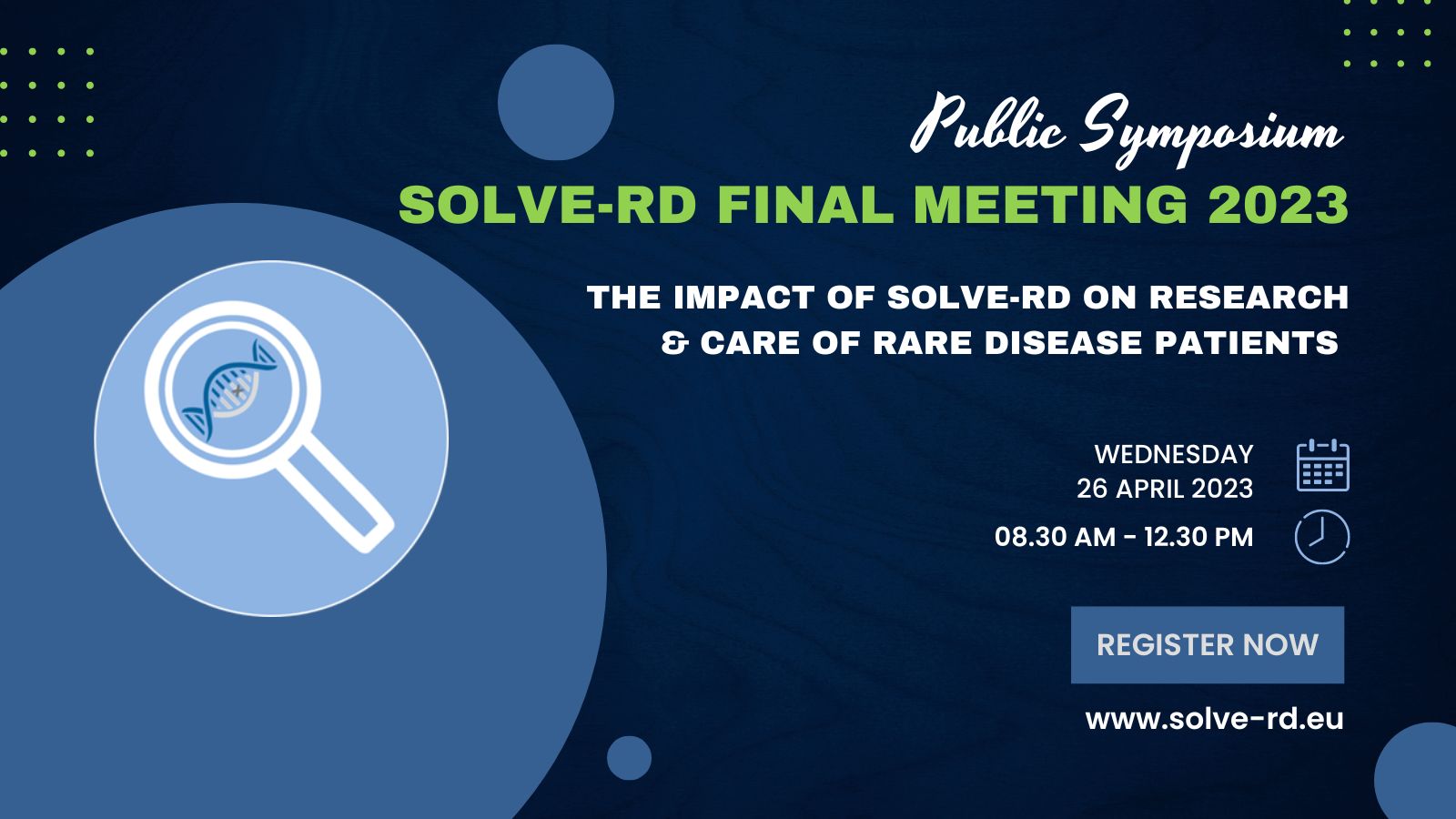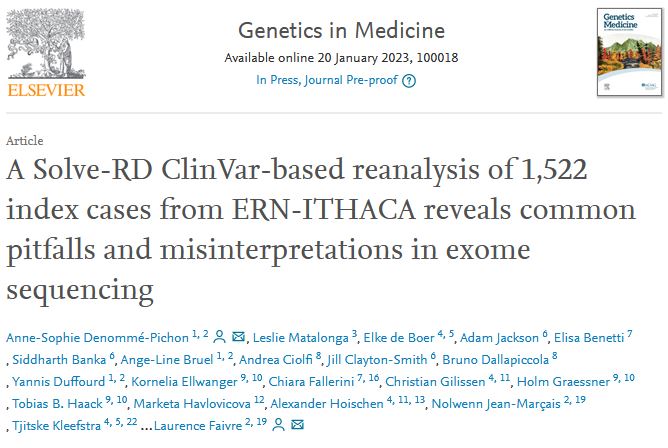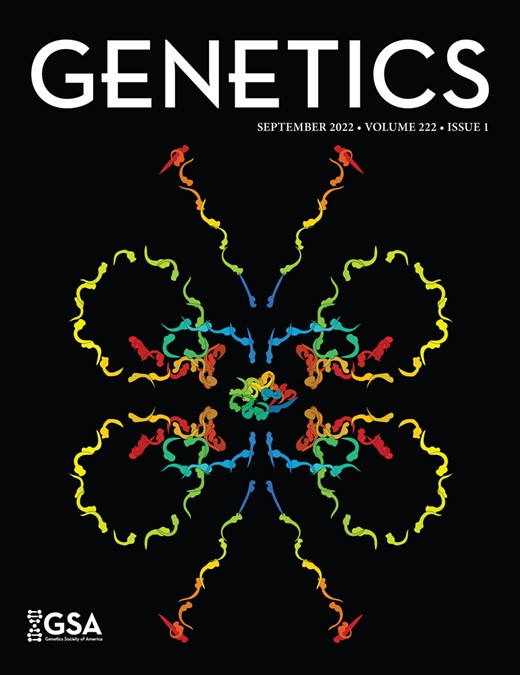
Solve-RD Public Symposium
Public Symposium at the Solve-RD Final Meeting 2023: The Impact of Solve-RD on Research & Care of Rare Disease Patients
The Public Symposium is open to the entire human genetics and rare disease community in Europe and beyond. In addition to presentations on Solve-RD achievements, we are very happy to have two keynote speakers: Ines Thiele (University of Galway) will outline the way “Towards a personalised systems biomedical approach for the diagnosis of inherited metabolic diseases” and Timothy Yu (Boston Childrens Hospital and Harvard Medical School) will speak about “Hyperpersonalized therapies for the long tail of genetic disease”. The Public Symposium is going to conclude with a round table discussion on “The Future of Rare Disease Diagnostics in Europe”. A list of excellent panellists will discuss what needs to change in rare disease diagnostics, the challenges and bottlenecks to take the next steps as well as concrete solutions on national, local, European and global level.
Date: Wednesday, 26 April 2023 from 8:30-12:30 CEST, online
Registration: https://us02web.zoom.us/webinar/register/WN_M1qQIxIhTwa37xFgwiAxJQ
Download the full programme here.
Download the symposium brochure here.
Programme:
Towards the future of rare disease diagnostics
08.30 AM - 10.15 AM | Chair: Ana Rath & Gulcin Gumus
- Keynote lecture: Towards a personalised systems biomedical approach for the diagnosis of inherited metabolic diseases
Ines Thiele, University of Galway - Keynote Lecture: Hyperpersonalized therapies for the long tail of genetic disease
Timothy Yu, Boston Childrens Hospital & Harvard Medical School - Looking further: Patient organizations and advancing RD research on diagnosis
Gulcin Gumus, Eurordis - SOLVE-RD 2.0
Olaf Riess, University of Tübingen
Impact of Solve-RD on research & care of rare disease patients
10.45 AM - 12.30 PM | Chair: Han Brunner & Holm Graessner
- Key SOLVE-RD achievements
Holm Graessner, University of Tübingen - Genomics reanalysis of a pan-European rare disease resource yields >500 new diagnoses
Alex Hoischen, Radboud UMC & Sergi Beltran, CNAG-CRG - Round Table: The future of rare disease diagnostics in Europe
Simona Bellagambi, Eurordis Board of Directors & Uniamo | Daria Julkowska, INSERM | Christina Kyriakopoulou, European Commission, DG Research & Innovation | Milan Macek, Charles University Prague | Olaf Riess, University of Tübingen | Lisenka Vissers, Radboud UMC | Timothy Yu, Boston Childrens Hospital & Harvard Medical School


